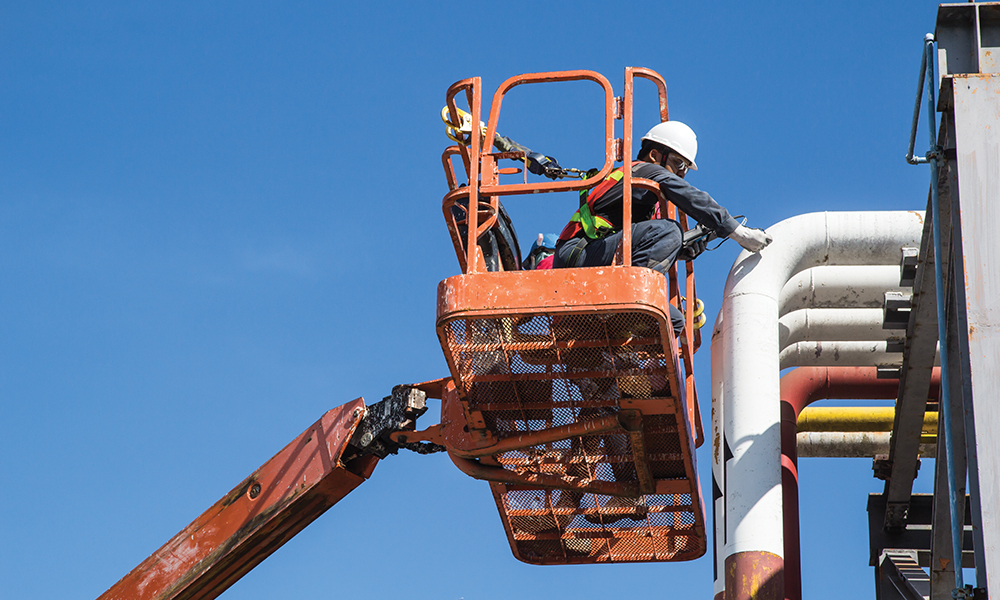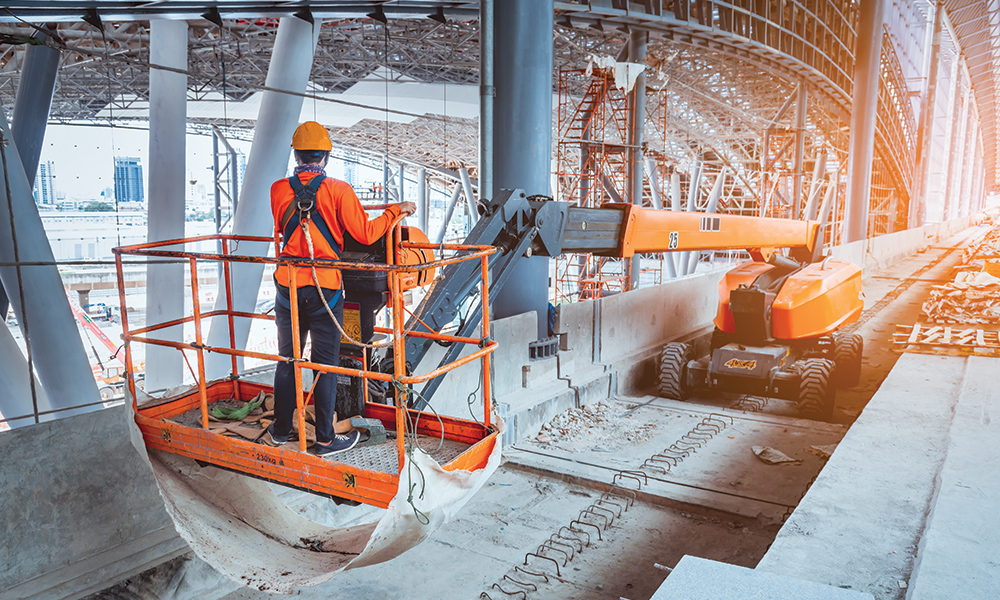Construction safety requires a multi-faceted approach from the manufacturers of heavy machinery all the way down to those using and operating the equipment on-site. Construction Machinery Middle East speaks to Johnson Arabia’s Joy Abuda – a key member of the AWP operations and sales team and their only female IPAF trained member of staff – about her part and that of the rental company in creating a safer environment for the end user.
Joy, can you explain the technical and operational assistance you provide when you hand out an AWP to be used on-site?
Depending on the needs and knowledge of the customer or operator we can either provide a familiarisation upon delivery, or full training at site or at one of our facilities. We are a fully IPAF certified training centre meaning we are approved to conduct operator training which meets ISO 18878 standards and is recognised globally for the operation of AWP. We also ensure our employees are full licensed, and therefore have the knowledge and expertise to familiarise our customers and ensure they are comfortable with the equipment they have chosen.
What safety measures and procedures is it necessary for you, as a rental company, to have in place?
As a leading supplier for working at height equipment, we have a range of procedures and practices in place to ensure our machinery meets the strictest standards of quality and operation. It all starts with our 5S methodology in our premises which optimises efficiency and safety in our operations and continues through the various before and after-hire inspections, as well as our preventative maintenance program and third-party inspections which ensures all our machinery is in the best condition.

What kind of advice does Johnson Arabia give customers when it comes to choosing the correct AWP they should use? Is there anything else that you tend to make them aware of?
A lot of our regular customers are already well aware of the products we run and the solutions they require, but often we will get either a new customer, or a more complicated job requirement where we are asked to advise our customer on what they want. In these instances, we can provide a free on-site survey to establish exactly what machine is best suited, or we can educate the customer in how to specify a machine themselves. Depending on the site and application, there are a whole range of things a customer might want to consider, from the power type, additional safety features, or even how the machine is going to be delivered.
Can you explain the breakdown of responsibility for AWP safety between the manufacturer, rental company and customer?
Responsibility for safety is very multi-faceted. It starts with manufacturers producing a piece of equipment which is inherently safe and well designed, with appropriate technical guidance to ensure that the products can be kept in a good and safe condition for its entire life cycle. It is then down to us as a rental provider to ensure we meet or exceed the manufacturer guidance on maintenance, as well as observing best practice as mandated by the government and other global organisations.
On a day-to-day basis the customer also has their own responsibilities. With our advice they need to select a machine appropriate for the job, ensure the use of the machine has been risk assessed and that other external factors are considered, and ensure that if they are providing their own operator, that there is appropriate training and familiarisation is arranged. After everything has been done to arrange a successful machine deployment, it is finally down to the individual operator in charge of the machine to ensure they are carrying out regular pre-use checks, following all safe systems of work and risk assessments, and ultimately operating the machinery in a safe and controlled manner.
How does the type of AWP impact safety procedure or approach?
The type of AWP plays a significant role in the safety procedure and approach. As does the site condition and location. Working at height is inherently dangerous, and AWPs help to significantly reduce risk of injury or death, however there are still a lot of things to consider when working on an active site. Selecting the right machine for the job is important so that no new risks are added. The type of machine used can impact a range of things; for example diesel machines should not be used in enclosed spaces. Or that machine point-loadings should be understood to determine what ground a machine can work on. Or even whether the machine is designed to work outside and what wind-loading the machine can take. There are dozens of factors which need to be considered, and either a well-trained person, or a site survey from Johnson Arabia, can help to solve most of these considerations.
Early in March 2022, the firm announced it took delivery of 10 JLG Electric Scissor Lifts.
The article originally appeared in the May 2022 issue of Construction Machinery Middle East.

